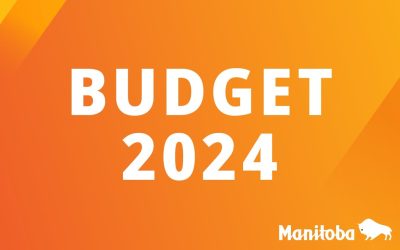Last week, a former chancellor of another country told me that the clarity of David Cameron’s and Nick Clegg’s message in their first 100 days has turned Britain into the poster boy of the developed world. Granted, other countries moved to address their deficits before the Coalition had the chance to get started. But no leaders have established the big picture so clearly, or indeed so starkly (just as no developed country had the hole in the budget that they inherited).
The Coalition’s leaders have not only pledged to eliminate the deficit, although that is their top priority. They have also said that they will shrink and rethink the government, so that their legacy is a stronger social fabric and a more enterprising economy. The dead hand of the state is to be replaced by a Big Society of flourishing, self-governing institutions. The public services may be funded by government, but they will be run by local people and answerable to those of us that use them, not to ministers.
Our leaders have refused to countenance a further burst of borrowing, judging that any short-term gain would be far outweighed by the long-term cost. Just look at the country that has followed the borrow-and-spend route most assiduously – America, which is now genuinely fearful about its economy. President Obama’s updated budget, published two weeks ago, forecasts that American government debt (as a share of national income) will rise each year for the next decade, with, as one eminent economist concluded, “no end in sight”.
Cameron and Clegg, by contrast, have provided some light at the end of the tunnel: they have pledged to balance the budget, and so stop the rise in our government debt, by the end of this parliament.
However, they won’t get there if they continue on their current course. This is partly because they haven’t yet managed to break government’s addiction to higher spending. The NHS, where evidence of inefficiency is greater than in any other public service, will see no reduction in its budget. Welfare is also a beneficiary of extra largesse: billions have been promised to increase the value of the state pension and for working people on low incomes.
The alarm bells should have started ringing during one of Cameron’s recent question-and-answer sessions: the Prime Minister demonstrated his support for a particular cause (in this case the level of skills among young adults) by saying that the Government was ready to spend billions on it. It might have been Gordon Brown talking. Surely if we have discovered anything in the past decade, it is that spending more is not the only route to success.
Compounding the Coalition’s budgetary profligacy is its failure to deliver on its ambition to rethink the role of government. The Budget in June imposed a freeze on some elements of public spending (such as child benefit and public sector pay) for two or three years, but left the structure of public services intact, with all its manifest inefficiencies.
The impression given was that after a temporary freeze, government could start to grow again in the same old way. Since then, the Coalition has announced policies that mean more of a central grip on the NHS and the Civil Service, not less.
The signs aren’t all bad. The reforms to policing will give us all real power over the 43 forces in England and Wales. Nick Herbert, the police minister, was exactly right in June when he said that “the test of an effective criminal justice system is not how much money we’re spending on it”. The Coalition’s education reforms, too, will give more power to parents and drive up standards in poorer areas.
As George Osborne argued yesterday, education reform is by far the best way to combine greater opportunity with a less intrusive government. And just as a man should be judged by his friends, policies should be judged by their opponents: we should be pleased that the National Union of Teachers is on the march against the school reforms, while the Association of Chief Police Officers is in a dignified retreat.
Yet schools and policing are relatively small spending areas, amounting to £60 billion per year. The annual cost of health and welfare is £300 billion; given our ageing population, this will rise sharply in years to come.
School and police reform need to be happen alongside reform of the big budgets, not in place of it. It is a worry that one of the most militant trade unions, the British Medical Association, is quietly content about the new direction for the NHS. In America, Congressman Paul Ryan has lit up politics with his plan to salvage the budget by encouraging greater personal responsibility for these areas. Mr Cameron and Mr Clegg need to do the same.
Overall, then, the Government is stumbling as it tries to find the path to successful reform. At one of my think tank’s recent conferences, Sir Roger Douglas, one of the outstanding reforming chancellors of New Zealand, explained his “three Cs” theory: consistent policy leads to confidence among voters, which in turn gives a government credibility.
The Coalition, however, has been inconsistent. David Cameron has talked of “momentous decisions” on public spending, yet highlighted ideas such as replacing council gardeners with volunteers. He has spoken of “decentralisation”, yet personally overruled Crispin Blunt and Anne Milton on social events in prisons and subsidised milk. He has talked of “transparency”, yet abolished the Audit Commission, one of the few organisations to have successfully pinpointed success and waste in the public sector. In fact, this decision embodies the contradictions in the Coalition’s early days: is it really good husbandry to save that £50 million a year, while protecting the NHS, which spends £50 million every four hours?
It is no wonder, then, that confidence among experts in the Government’s willingness to take the tough choices on public spending is waning.
To address this, Mr Cameron and Mr Clegg need to have more confidence in the principles that they have set out. They should not back down in the face of opposition, because that is actually a sign that they are on the right track. They should resist the urge to micromanage every decision in government, which was the key mistake that Gordon Brown made, and the surest route to centralisation and waste.
They need to understand that activity is not the same as effectiveness, and that they need to focus on the things that matter. Then they will more than deserve their growing global reputation.


